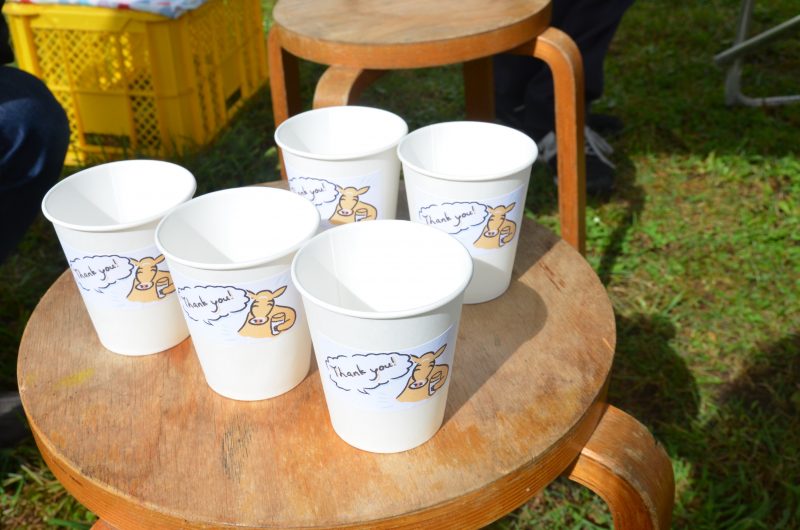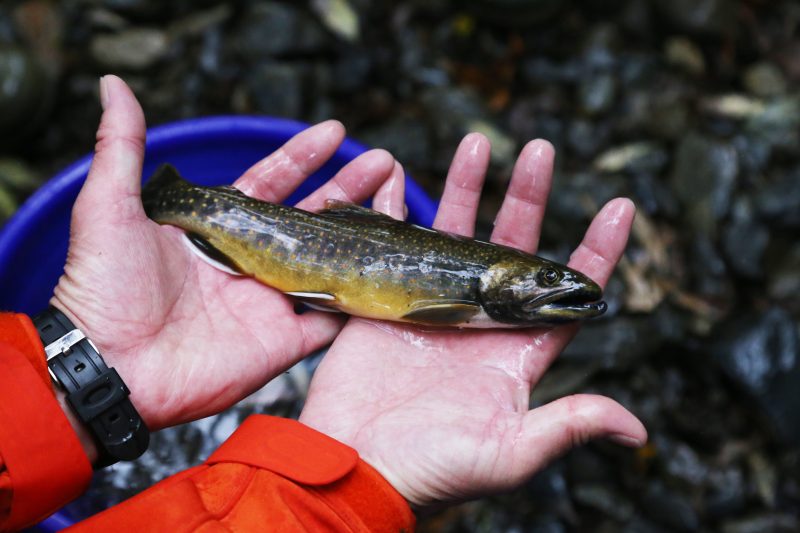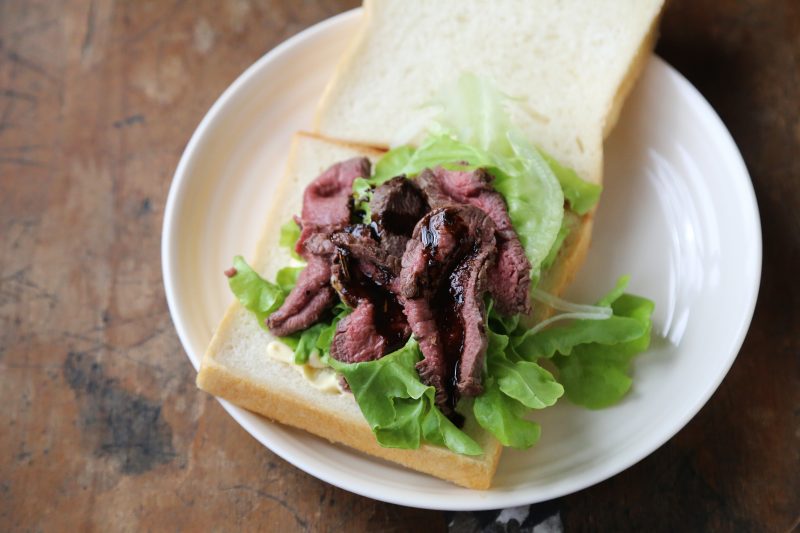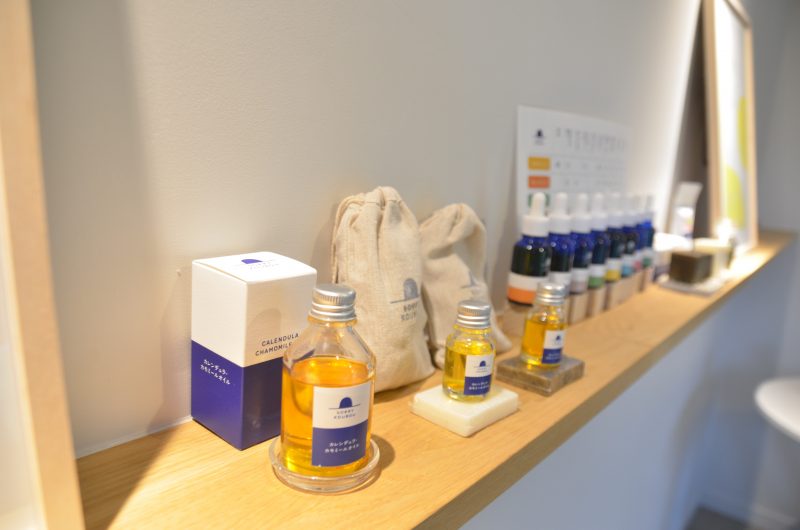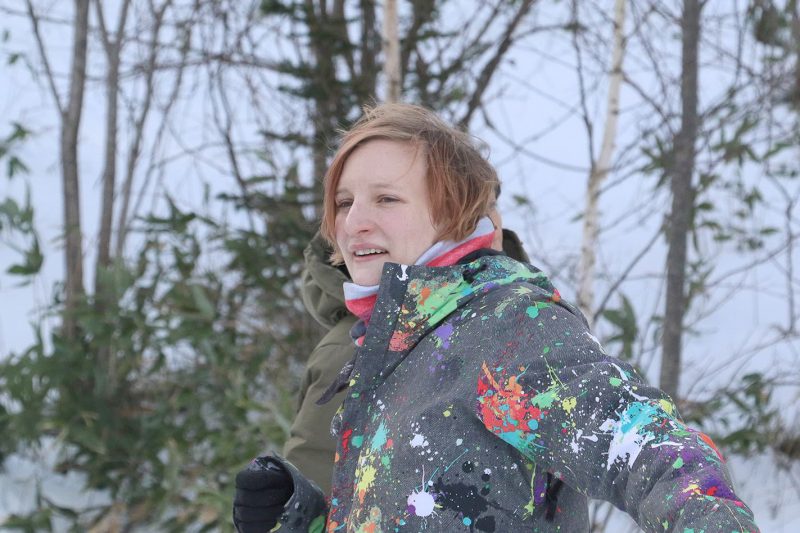- Activity Level
The Northern Hokkaido Sustainability Experience: Forests, Farming, & Cultural Interaction
Experience a tour focuses on the many aspects of the Sustainable life style being implemented in Northern Hokkaido. Suppose you are looking for a time that combines relaxing activities in overwhelming nature, cultural interaction with local people, and locally produced foods. In that case, this is the tour for you!
On this tour, we visit three towns in Hokkaido which are making an effort towards more sustainability and discover how they aim to create a more sustainable society. It starts from Shimokawa town, designated as one of the “Future Cities” by the Japanese Government. The second place to visit is Nishiokoppe village, where you will meet a woman who is a deer hunter and practices a sustainable hunting style. The tour ends in Takinoue town, which thrives in forestry and dairy farming. This tour will broaden your horizons and encourage you for a positive change.
Shimokawa town, Takinoue town, Nishiokoppe village
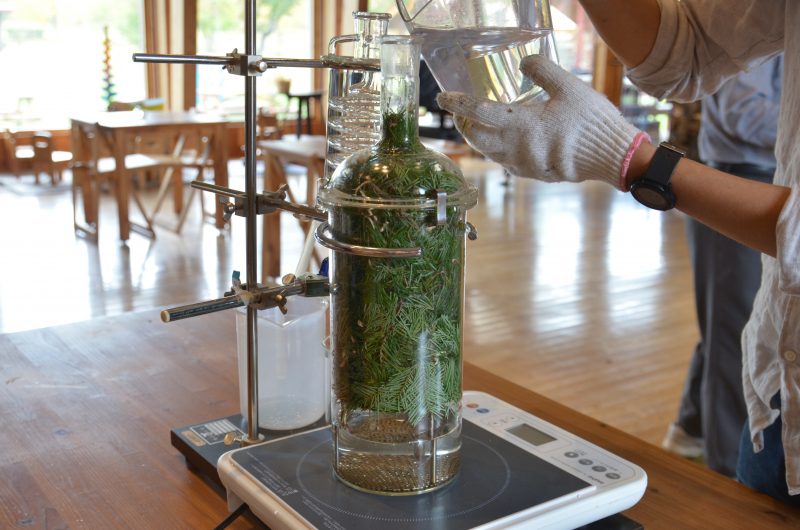
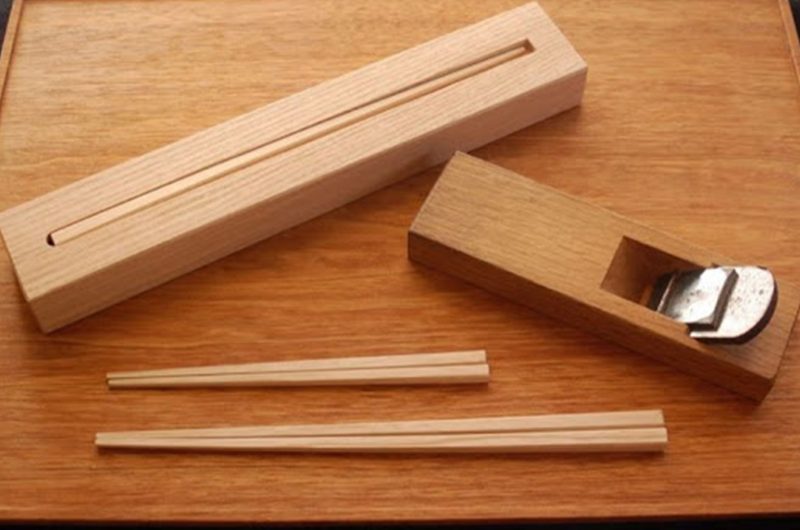
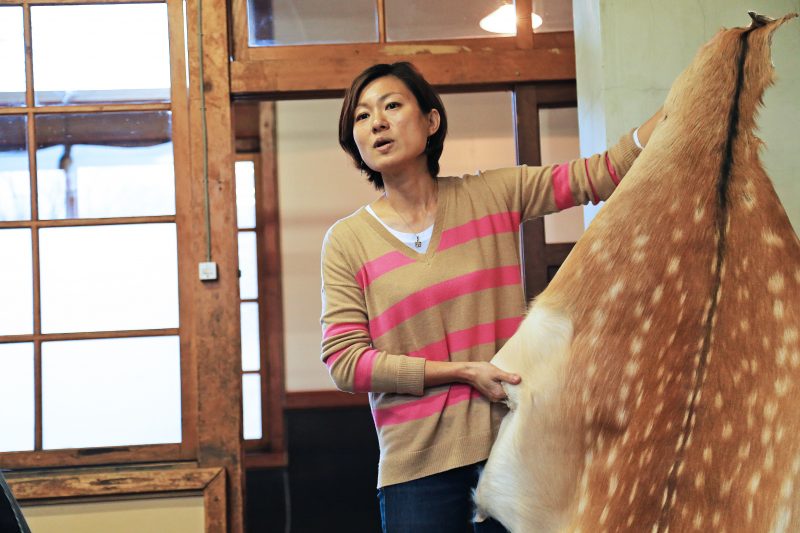
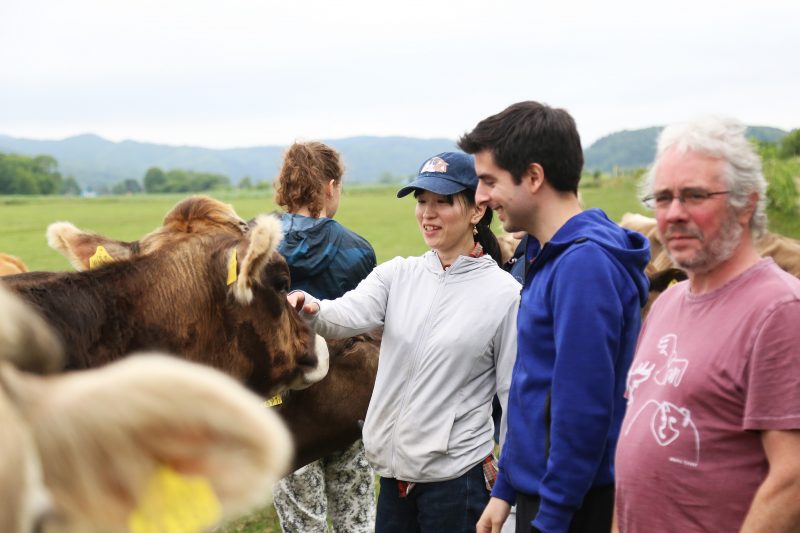
People you’ll meet
No. EM000022 The Northern Hokkaido Sustainability Experience: Forests, Farming, & Cultural Interaction
| Area | Shimokawa town, Takinoue town, Nishiokoppe village |
|---|---|
| Length | 4 days |
| Price | Please contact us |
| Season | March - October |
| Group size | Minimum: 4 Maximum: 10 |
| Activity level | 1* |
| Activities | Cultural experiences |
| Meeting point | JR Nayoro Station |
| Price includes | • 3 nights accommodation • 3 breakfasts, 3 lunches, 3 dinneres • All transport as described in the itinerary • English speaking guide(s) |
| Clothing | • Warm/ Windproof/ Waterproof jacket • Trekking shoes • Comfortable and moveable clothing |
| Items to bring | • Backpack • Water bottle • Rain gear • Sunscreen • Sunglasses |
Traveler’s Digest
DAY 1
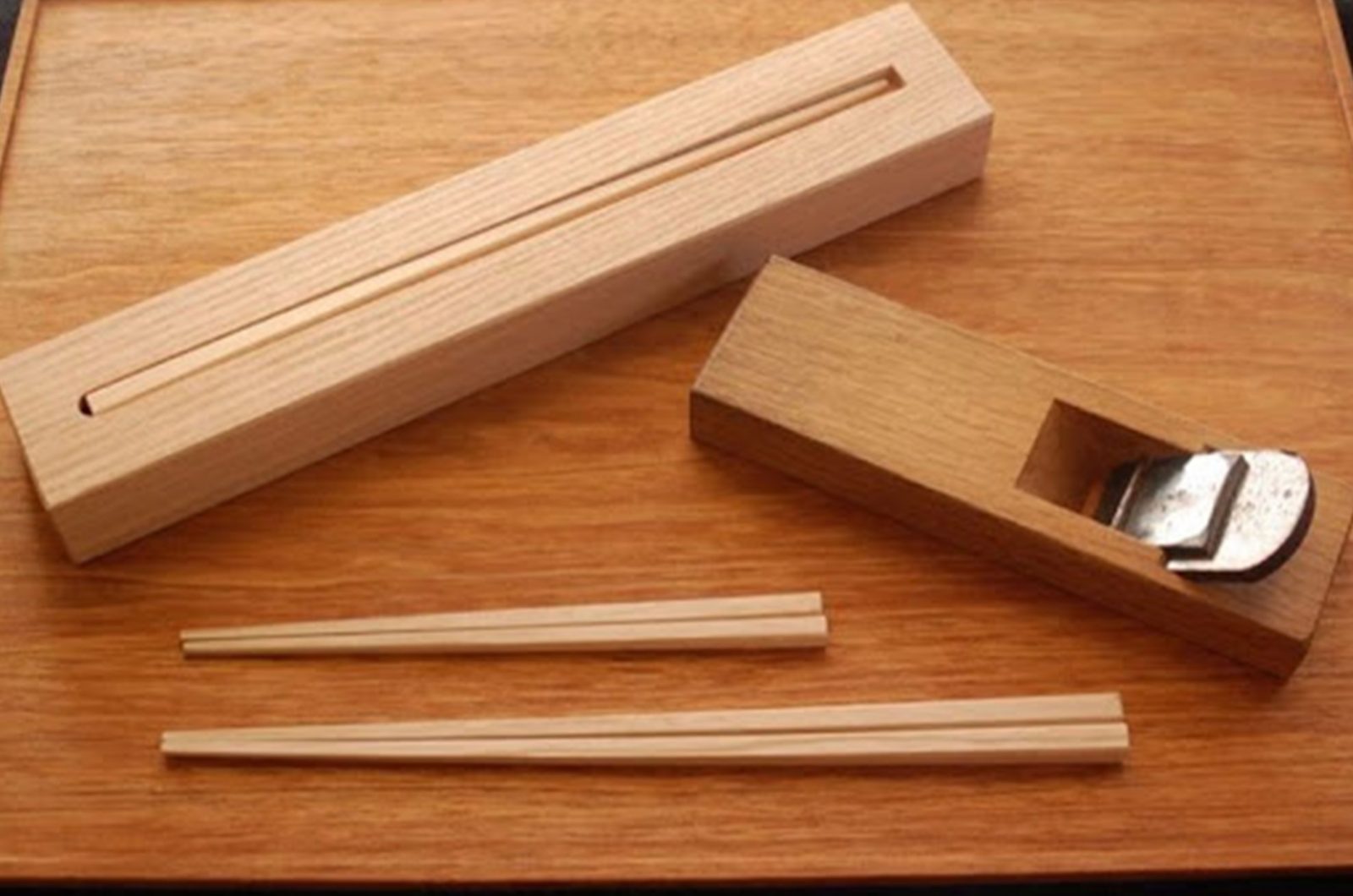
We meet at 1:00 pm at the JR Nayoro Station on the first day. Once everyone has arrived, we drive about 40-minutes to Shimokawa, a town blessed with forest resources. After having a briefing session to introduce ourselves and share the upcoming itinerary at a community center, we head to a woodcraft workshop, today’s main site. Here you try your hand at making your chopsticks with timber offcuts using “Kan’na,” a Japanese authentic woodwork tool. Masahiro Kondo, a woodworker, runs this woodcraft workshop and mainly makes products using timber offcuts. While creating his artifacts, he tries to minimize wood waste.
In the evening, we have a healthy dinner course using local products at a quaint restaurant, with the chopsticks we made by ourselves. Our accommodation in Shimokawa is a hotel that cares for sustainable regional development.
DAY 2
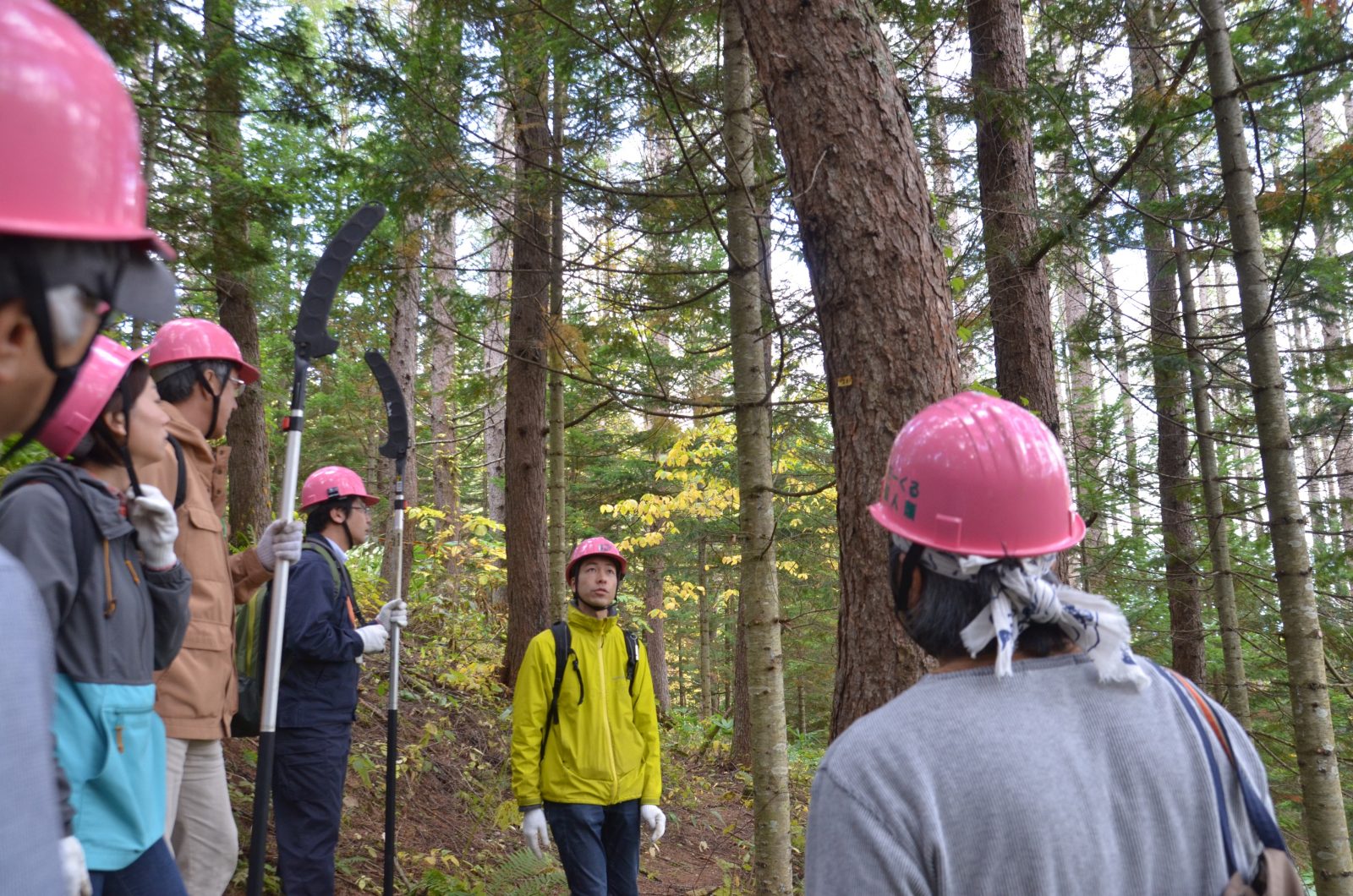
Today you discover why Shimokawa was designated as a “Future City.” In the fresh morning air, we practice Shinrin Yoku (forest bathing) in the forest, which accounts for 90% of Shimokawa’s area. On the way, we gather twigs and leaves of Sakhalin fir for making some essential oil. Sakhalin fir grows in colonies in this area, called “Fupu” in the language of Ainu, indigenous people. After Shinrin Yoku, we make essential oil with extractive distillation, using distilled water and oil of Sakhalin fir.
Today’s lunch is a “bento lunch box” made with only local products. After having tasty lunch, we head to a small local company producing organic herbal cosmetics. We try our hand at making an organic herbal soap that embodies the power of nature. Kaori Yamada, the owner of this company, was moved to Shimokawa after the Great East Japan Earthquake hit. She found that the materials that keep our skins and live healthily are natural, and now she does farming by hand.
We have dinner at a quaint restaurant. Not only healthy meals made with local products, but you can also enjoy interaction with local people tonight!
DAY 3
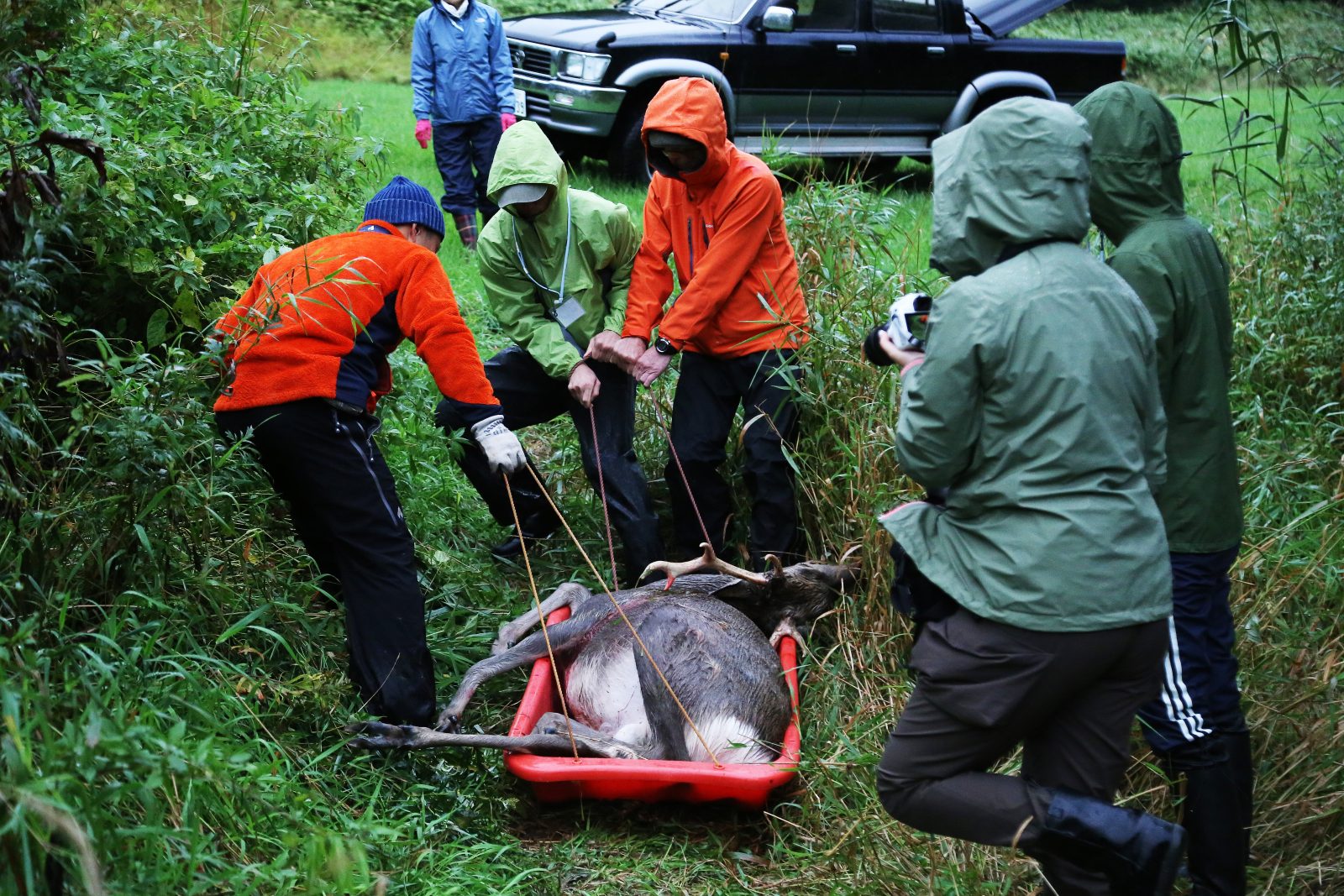
Today we are met by a woman deer hunter who makes an effort for harmonious coexistence with nature. We take a leisurely walk in her hunting grounds blessed with the bounty of nature. We try stream fishing and mushroom picking for tonight’s dinner in the forest atmosphere. After having lunch, it is time to try leather crafts. The material we use is deerskin which she has tanned herself under her policy to use every part of deer so that deer’s life isn’t wasted. We can touch with her environment-friendly attitude by learning her perspective through interaction with her and her family.
We raise our glasses and toast to our great adventures at the final dinner made with ingredients picked in the mountain. The chef for tonight’s special dinner is you!
DAY 4
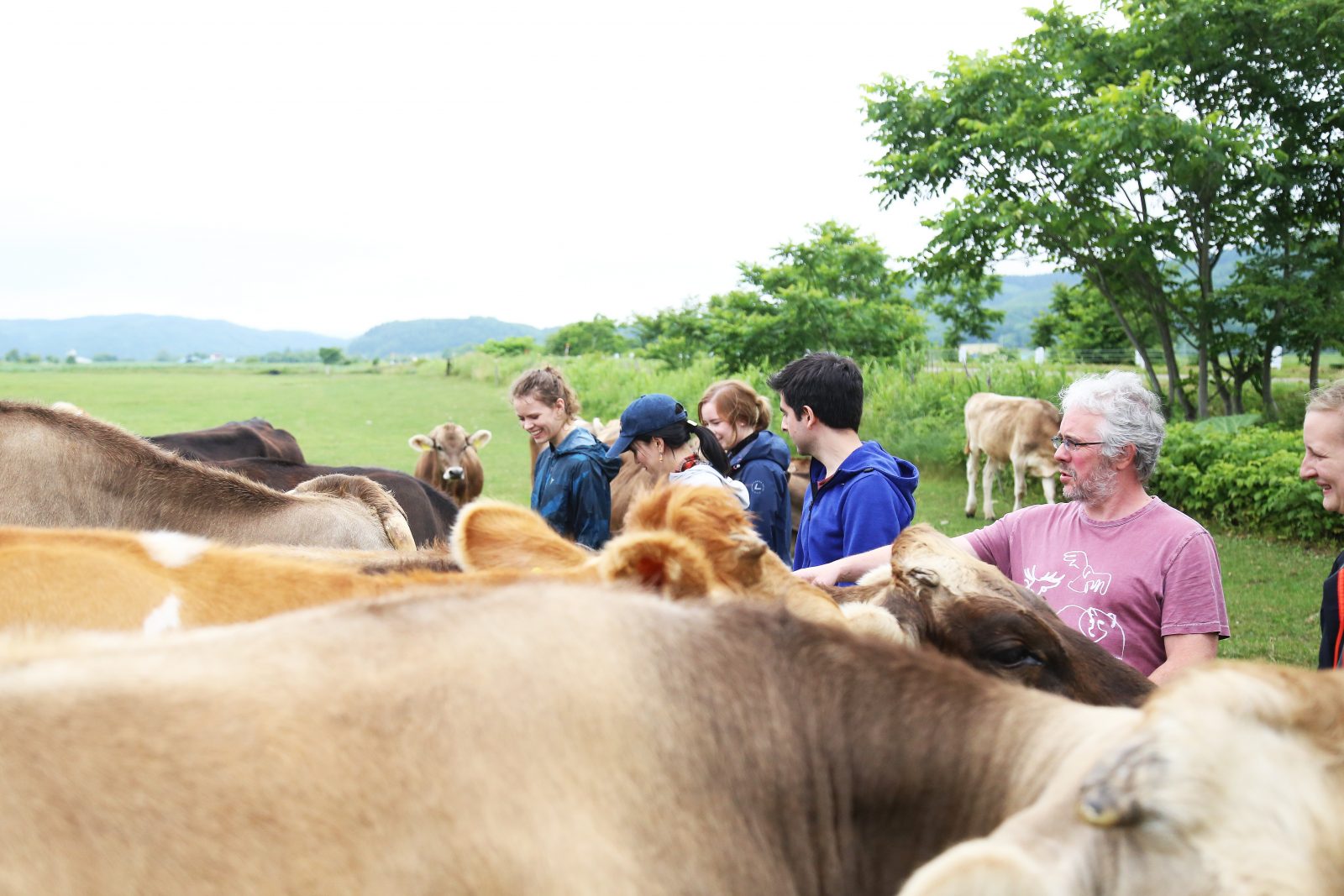
On our last day, before saying goodbye, we take a relaxing walk with cows at the picturesque pasture. The idyllically calm and peaceful scenery no doubt make your heart feel good. Under the policy of this farm to give top priority to cow welfare, they let the cows graze in the pasture as much as possible. On this farm, they produce homemade milk. Their nature-and-cow-friendly attitude makes this milk excellent quality.
After having a farewell lunch at a local cafe, we say goodbye and you can take the express-bus for to Sapporo for 3.5 hours.
